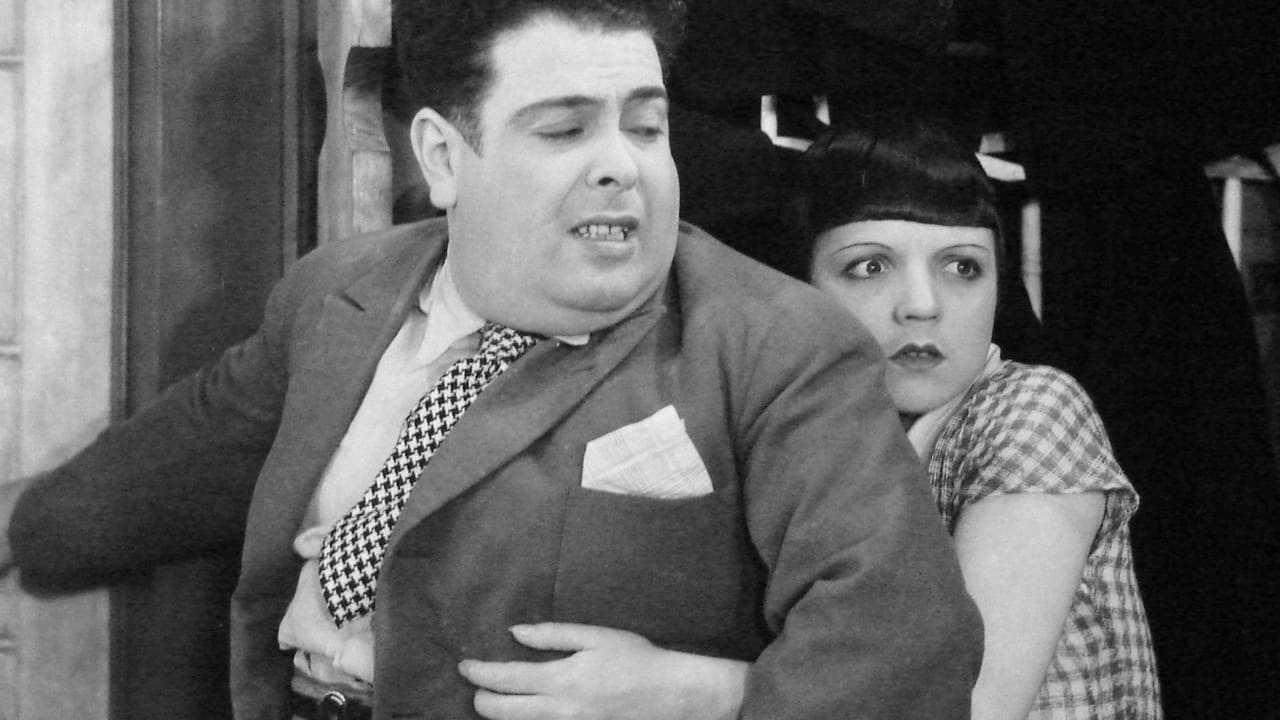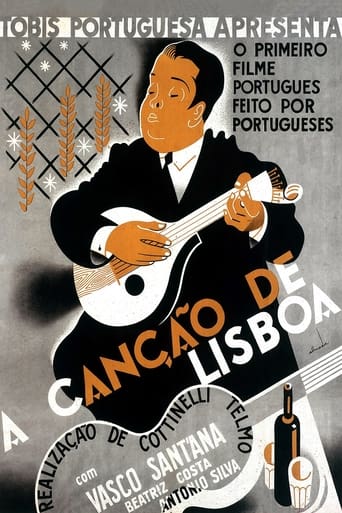



This story has more twists and turns than a second-rate soap opera.
View MoreMostly, the movie is committed to the value of a good time.
View MoreGreat movie. Not sure what people expected but I found it highly entertaining.
View MoreBlistering performances.
This film tells the story of Vasco Leitão, a young student probably born in Northern Portugal, which goes to Lisbon in order to study in Medical School. But the big city, even in the early thirties, was full of temptations for countryside students and Vasco, ultimately, fail his exams, having spent most of his time and money with wine, girlfriends and amusements. It turns out he kept secret of all this for his family in the country, which thinks he's successfully graduated. In this context, Vasco receives the unexpected visit of two aunts who sent him a lot of money to pay for his studies and the doctor's office...This film is one of the most important classics of Portuguese cinema. Not by chance, but by merit. Directed by Cottinelli Telmo, has as its protagonist the renowned humorist Vasco Santana, but also with the participation of Beatriz Costa (in the role of Vasco's girlfriend, Alice) and Antonio Silva (in the role of Caetano, the harsh and selfish father of Alice). Being an old-fashioned comedy, we can expect several situation and context jokes, as well as comical word games. This film never lose their funny. It's a film always fresh and pleasant to see, which also has an interesting defense of fado, the most popular musical genre among the Portuguese of that time, and still an important part of the collective identity of the country in our days.A film recommended for the whole family, it has scenes that have become famous and jokes that all Portuguese known well. It is a beloved film, loved all over the country and by all the lovers of Portuguese cinema.
View MoreI discovered the movie a few weeks ago via Utube. I was doing some searching about Beatriz Costa and her career.I saw the movie a few times and a got interested in a an almost unknown actress whose name is "ANA MARIA".I tried finding information on the net about her, a biography but a did not find anything but the list of her movies in IMDb and other databases such as Hollywood.com. She appears for about 6 minutes in the movie A Cançao de Lisboa. In her role of "Ana da Garcia", she is the girlfriend of Carlos, interpreted by Manoel de Oliveira.She seems to have played in 8 movies according to IMDb and to 11 movies according to Hollywood.com. Both database agree about 8.However, according to pborgesalmeida in Utube, she was involved in only one movie and the information about her was lost due to lack of activity and length of time.In the Portuguese cinema magazine Cinefilo dated 12 august 1933 a short article presents Ana Maria as an actress in her first role. Also the cinema revistas magazine Imagem No 84,june 1933, and No 98, feb. 1934, are almost totally devoted to the movie Cançao de Lisboa.So i am trying to find who is telling the true story about ANA MARIA. I have a strong feeling that the IMDb and other data bases may contains a few errors or omissions but in this case the errors too many.I suspect that her name being unspecific creates identification problems and a source of confusion. I also consider that important information about actors, such as real name, date of birth, career, etc should be preserved even if they had only secondary roles and that even they were unknown to the general public.I wish to solve the problem raised by the identity of ANA MARIA: How many films and roles she played during her career in addition to any relevant information about her as an actress and a person.One may say that this problem is not important because the actress is not very known or and popular person. I want also to write a very short biography of her in indicating her real name, village or city of origin, date of birth, career and professions, etc.If you have any information about this actress and person, her career and life, please let me know. I contacted many people and official organisations about her. There is no information available from them.Thanks a lot
View More***SPOILERS*** ***SPOILERS*** This movie is surely one of the most delicious movies I've ever seen. It's simple, funny, naïf, and intelligent. It reflects some of the most important factors of the portuguese student. Vasco Leitão is a medicine student in Lisbon (in the old Faculty of Campo de Santana, that still exists), living from the money that his old aunts from the country-side, send him, thinking he is an example of dignity and science. Though the young student, is more like a bohemian, who likes to dance, drink, and flirt young girls. Sudden he is thrown out of the room he rented, the aunts decide to come to Lisbon, and he fails to achieve the degree. The student tries, to illude his aunts by telling them he is already a doctor, but they discover the trick, and cut the funds from wich he was living. A rich friend of his(Carlos, played by Manoel de Oliveira, the director), gets him a job singing fado. The movie ends with his marriage, already a doctor and in peace with everybody. This movie is the classic "it all ends up well", and it's a marvelous metaphor of the portuguese society of th 1930's, that wasn't that happy. Many aspects, sayings and situations are still real in Portugal, the students still like to sing and to be bohemians, people still say "fixe", and many other things. It's the beginning of the Golden Era of portuguese cinema, and a movie that people still watches and loves it.
View MoreI must say that this is one of the few movies to which I am constantly returning. I've watched it over and over and I find it every time more exciting. I believe this is due to several things. First of all, the fantastic interpretations of the great portuguese names such as Beatriz Costa, António Silva and, of course, Vasco Santana. Than, there is also the great dialogues and story (all the schemes Vasquinho finds to lie to his aunts...). But, in my opinion, what makes this movie, and other portuguese movies from this time, so special, is the fact that they were made honestly, completely honestly. Suddenly someone says "Let's make people laugh"; and they just did it, they were not trying to revolucionize the cinema or something, they had a simple straight project, and they went all the way with it... That's the attitude many portuguese (and not only) directors should have nowadays... It is interesting to notice that the most prestigious portuguese director alive, Manoel de Oliveira, played a role in this movie, Carlos. And if you have seen american "Space cowboys" you will find in it a joke that is already present in this 1933's movie (did the americans see this movie??)... It's when a girl asks Vasquinho "How should call you?" and he answers "Call me Vasquinho, call me Lulu... look... call me whenever you want that I'll be right there...". Donald Sutherland says an equivalent joke.No doubt a lesson in how to make you laugh, even in black and white (which I love, by the way). 10/10
View More